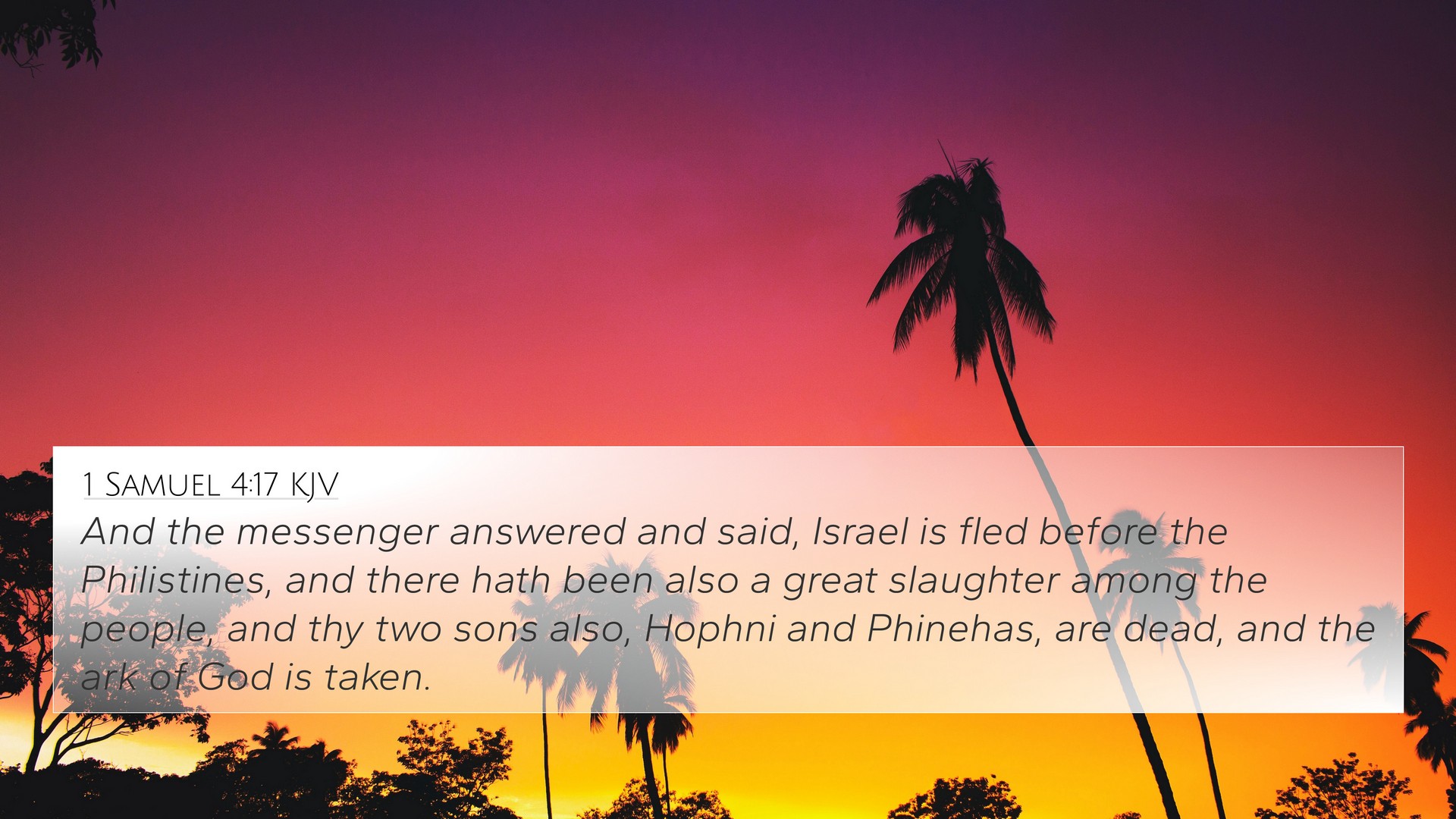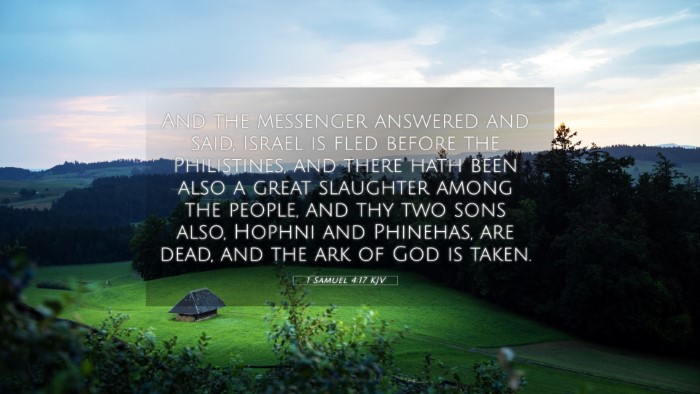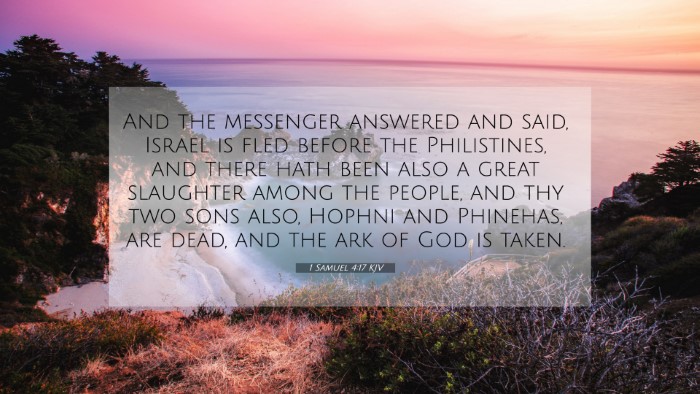Understanding 1 Samuel 4:17
This verse recounts a tragic moment in Israel's history during a battle with the Philistines, conveying deep themes of loss, judgment, and the serious consequences of turning away from God.
Verse Context
1 Samuel 4:17 states:
"And the messenger answered and said, Israel has fled before the Philistines, and there has been a great slaughter among the people; your two sons also, Hophni and Phinehas, are dead, and the ark of God has been captured." (1 Samuel 4:17, ESV)
Commentary Insights
-
Matthew Henry's Commentary:
Henry highlights the gravity of Israel's defeat and how it reflects God's withdrawal of protection due to the people's sin. The death of Eli's sons serves as a divine judgment against their corrupt practices as priests.
-
Albert Barnes' Notes:
Barnes explains that this passage illustrates not only the loss of life but also the loss of the ark, which symbolized God's presence among His people. The capture of the ark signifies a profound spiritual crisis.
-
Adam Clarke's Commentary:
Clarke delves into the significance of the messenger's report and emphasizes the shock and sorrow it brought upon Eli, representing both a physical and spiritual defeat for Israel, highlighting God's covenant relationship and the ramifications of failing to uphold it.
Thematic Exploration
This verse illustrates several key themes:
- Divine Judgment: The consequences of sin and moral failures are evident in the fateful losses experienced by Israel.
- Loss of God’s Presence: The capture of the ark symbolizes the absence of God's favor, indicating the seriousness of Israel's spiritual state.
- Human Suffering: The death of Eli's sons and the defeat in battle reflect profound human grief and the ongoing struggles faced in faith.
Cross References
1 Samuel 4:17 is connected to several other passages that help to deepen the understanding of its significance:
- Jeremiah 7:12-14: This passage discusses God's judgment on a people who have forsaken Him.
- Psalm 78:60-61: This scripture recounts how God abandoned the tabernacle in Shiloh, a parallel to the loss of the ark.
- Isaiah 59:2: Illustrates how sin can separate a people from God, tying into the themes of judgment and loss of presence.
- Hebrews 10:26-27: Emphasizes consequences for willful sin, drawing parallels to the failures of Eli’s house.
- 1 Samuel 2:12-17: Details the corrupt practices of Eli's sons, providing background to their deaths.
- Joshua 7:1-12: Discusses the consequences of sin in Israel, a similar theme of national disaster due to disobedience.
- Amos 3:2: God reminds Israel that He holds them accountable as His chosen people, paralleling the concepts of judgment in 1 Samuel 4:17.
Connections with Other Scriptures
This verse also establishes important inter-Biblical dialogues:
- Identifying connections between Old and New Testament passages exemplifying God's unchanging nature in response to sin.
- Linking Bible scriptures that highlight God's judgment and the need for repentance throughout Biblical history.
- Comparative Bible verse analysis can be made between the themes found in this passage and New Testament discussions of community responsibility in faith.
- Examining how the loss of the ark in 1 Samuel resonates with the New Testament teachings about the loss of divine favor.
Research Tools for Deeper Understanding
For those interested in exploring the connections further, utilizing comprehensive tools for Bible cross-referencing is essential:
- Bible Concordance: A tool to find key terms and their locations throughout the Scriptures.
- Bible Cross-reference Guide: Helps locate verses that relate to one another across both testaments.
- Cross-reference Bible Study: A methodical approach to understanding themes and connections in Scripture.
- How to Use Bible Cross-references: Techniques for deeper Bible study, enhancing comprehension and insight.
Conclusion
The events in 1 Samuel 4:17 serve as a powerful reminder about the consequences of straying from God's commands and the hope that can arise in repentance. By understanding the connections between various passages, one can grasp the overarching narrative of redemption and divine fidelity throughout the Bible.




